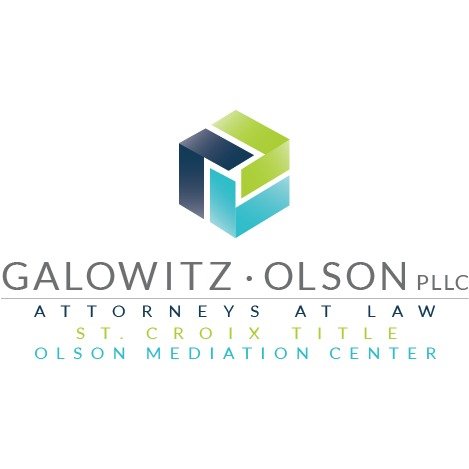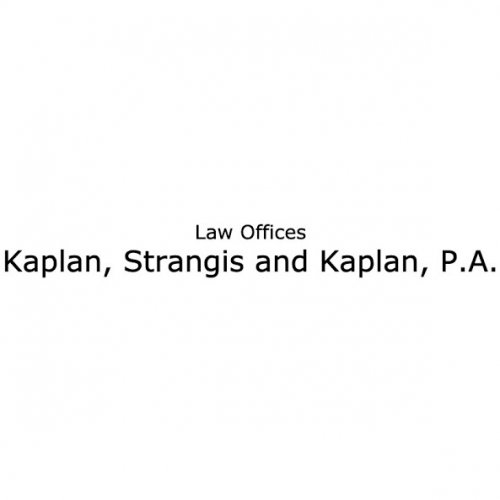Best Debt Capital Markets Lawyers in Minnesota
Share your needs with us, get contacted by law firms.
Free. Takes 2 min.
Or refine your search by selecting a city:
List of the best lawyers in Minnesota, United States
About Debt Capital Markets Law in Minnesota, United States
Debt Capital Markets (DCM) refer to financial markets where entities such as corporations, municipalities, and the state of Minnesota raise funds by issuing debt instruments like bonds, notes, and debentures. In these markets, legal frameworks govern the structuring, issuing, trading, and regulatory compliance of debt securities. In Minnesota, DCM law covers public and private offerings, regulatory filings, due diligence, and adherence to federal and state-specific laws. The landscape often involves collaboration among issuers, underwriters, institutional investors, and regulatory bodies within Minnesota and across the United States.
Why You May Need a Lawyer
Seeking legal advice in the realm of Debt Capital Markets is crucial for various reasons. Common situations where people may require a lawyer include:
- Issuing Bonds: Corporations or public entities planning to issue bonds must comply with regulations and disclosure requirements.
- Securities Offerings: Navigating federal and state registration or exemption rules when offering debt instruments to investors.
- Regulatory Compliance: Understanding and fulfilling reporting and recordkeeping requirements for both state and federal agencies.
- Due Diligence: Conducting thorough checks during mergers, acquisitions, or when investing in debt securities.
- Dispute Resolution: Addressing disagreements between issuers, underwriters, and investors.
- Restructuring Debt: Managing defaults or renegotiating terms when facing financial difficulties.
- Municipal Debt: Ensuring compliance with unique rules for cities, counties, and school districts in Minnesota that issue public debt.
- Private Placements: Advising on unregistered offerings to institutional investors under specific exemptions.
Local Laws Overview
Minnesota operates under both federal securities law and state-specific regulations. Key statutes include the Minnesota Securities Act, which governs the offer and sale of securities within the state. Issuers must consider filing requirements with the Minnesota Department of Commerce, especially for state-registered offerings. Public entities such as cities and school districts are subject to specific Minnesota Statutes, which outline permissible types of debt, voter approval requirements, and debt limits. Additionally, all offerings must adhere to disclosures mandated by both the U.S. Securities and Exchange Commission and state regulators. Compliance with anti-fraud, investor protection laws, and municipal finance rules is strictly enforced.
Frequently Asked Questions
What are Debt Capital Markets?
Debt Capital Markets are financial markets for raising funds by issuing debt securities such as bonds, notes, or debentures, typically involving transactions between issuers and investors.
Who regulates Debt Capital Markets in Minnesota?
Both federal regulators like the Securities and Exchange Commission and state agencies such as the Minnesota Department of Commerce oversee these markets.
Do I need to register my bond offering in Minnesota?
Most public offerings must be registered with both the SEC and the Minnesota Department of Commerce, unless they qualify for an exemption.
Are there restrictions on who can purchase debt securities?
Yes, some offerings are limited to accredited or institutional investors, especially for private placements or exempt offerings.
What disclosures are required when issuing debt in Minnesota?
Issuers must provide clear, complete information regarding the terms, risks, and financial condition associated with the debt securities.
How are municipal bonds regulated in Minnesota?
Municipal bonds must comply with Minnesota Statutes, federal tax law, and securities laws, including voter approval and debt ceiling requirements for certain public entities.
What happens if an issuer defaults on a bond?
Bondholders may seek remedies such as negotiations, restructuring, or, in severe cases, legal action for breach of contract or non-payment.
Can individuals directly invest in debt instruments?
Yes, individuals can often invest in publicly offered bonds, but certain complex or private offerings may only be available to qualified investors.
Are there local tax considerations for debt instruments?
Interest on some Minnesota municipal bonds may be exempt from state and federal income taxes, but other debt instruments could have taxable interest.
Is legal review necessary for every debt offering?
While not always required by law, legal review is highly recommended to ensure compliance, manage risk, and avoid penalties or invalid offerings.
Additional Resources
- Minnesota Department of Commerce Securities Division: Oversees state securities laws and registration requirements.
- U.S. Securities and Exchange Commission (SEC): Provides federal guidance and regulations regarding debt securities.
- Municipal Securities Rulemaking Board (MSRB): Sets standards and offers resources for municipal bond transactions.
- Financial Industry Regulatory Authority (FINRA): Regulates broker-dealers in the debt markets.
- Minnesota State Bar Association: Can help locate attorneys experienced in Debt Capital Markets law in Minnesota.
Next Steps
If you need legal assistance related to Debt Capital Markets in Minnesota, start by identifying the nature and scope of your needs, such as issuing bonds, compliance concerns, or dispute resolution. Gather all relevant documentation, including offering materials, contracts, and correspondence. Then, consult a qualified Minnesota attorney with experience in securities or debt finance law. The Minnesota State Bar Association can help locate suitable professionals. Schedule an initial consultation to discuss your goals, risks, and potential legal strategies. Consider reaching out to regulatory bodies like the Minnesota Department of Commerce for further information about your requirements. Early legal guidance can help ensure a smooth and compliant transaction while protecting your rights and interests.
Lawzana helps you find the best lawyers and law firms in Minnesota through a curated and pre-screened list of qualified legal professionals. Our platform offers rankings and detailed profiles of attorneys and law firms, allowing you to compare based on practice areas, including Debt Capital Markets, experience, and client feedback.
Each profile includes a description of the firm's areas of practice, client reviews, team members and partners, year of establishment, spoken languages, office locations, contact information, social media presence, and any published articles or resources. Most firms on our platform speak English and are experienced in both local and international legal matters.
Get a quote from top-rated law firms in Minnesota, United States — quickly, securely, and without unnecessary hassle.
Disclaimer:
The information provided on this page is for general informational purposes only and does not constitute legal advice. While we strive to ensure the accuracy and relevance of the content, legal information may change over time, and interpretations of the law can vary. You should always consult with a qualified legal professional for advice specific to your situation.
We disclaim all liability for actions taken or not taken based on the content of this page. If you believe any information is incorrect or outdated, please contact us, and we will review and update it where appropriate.
Browse debt capital markets law firms by city in Minnesota
Refine your search by selecting a city.









